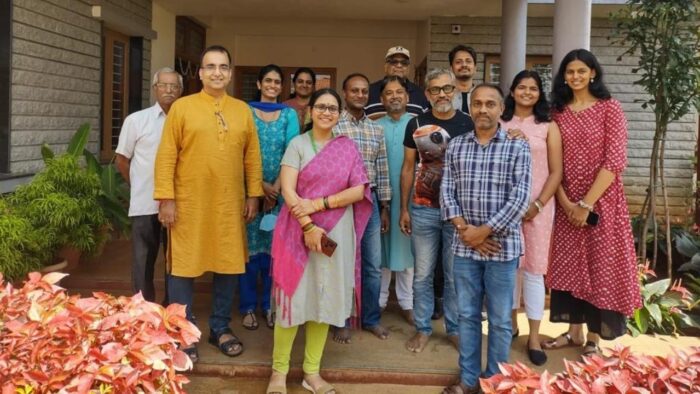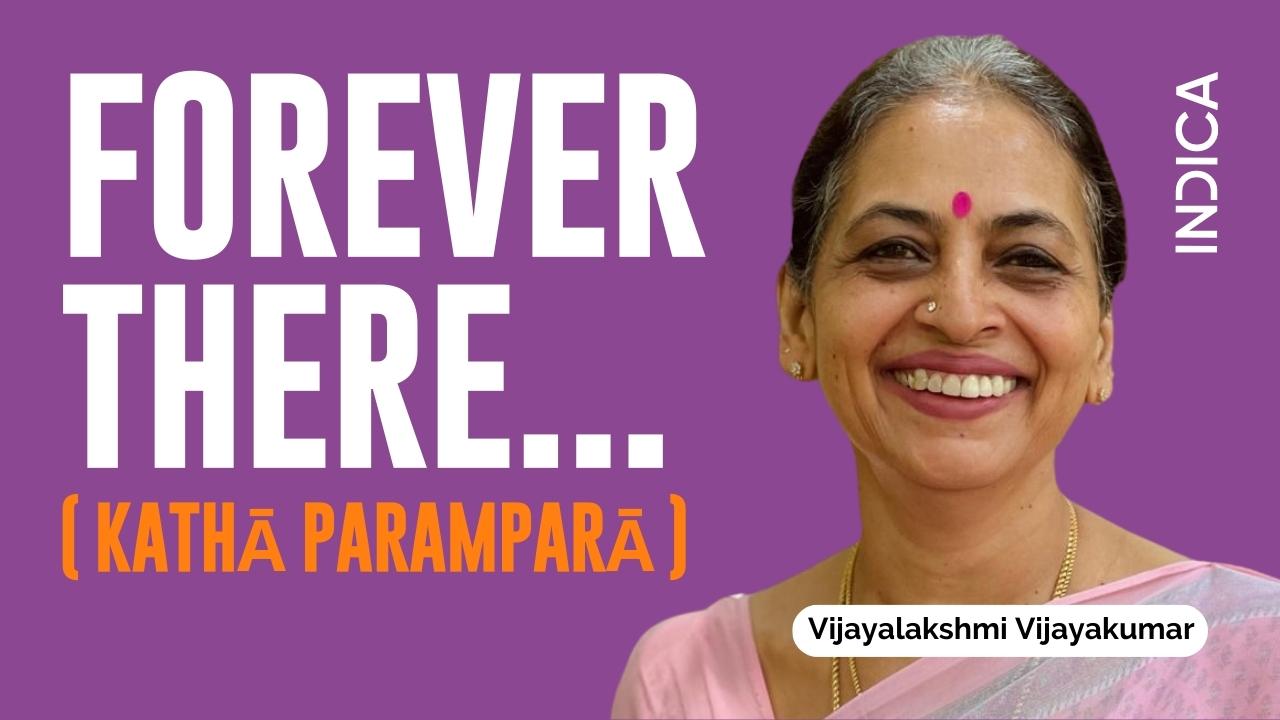The hustle filled ring roads and highways of Bangalore gave way to the narrow and yet vivacious outskirts. The week’s fatigue too wore at the thought of meeting like minded aspiring writers from Indica’s 1000 Reviewers club. My memories were still fresh about the retreat in Mumbai which I had attended to listen to the rigorous insights of Shrikant Talageri ji. Three years down the line found me hosting a retreat for this dynamic group of writers and reviewers, sharing with them, aspects of my own journey in a hope to accelerate their learning curves.
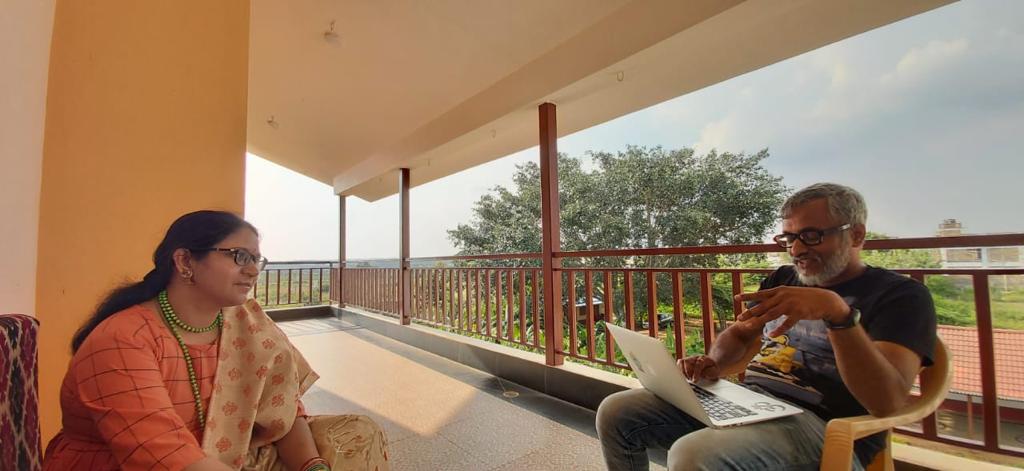 The car drove into the soulfully built premises of Rithambhara Retreat. Already running late, thanks to the famed traffic of Bengaluru, my mind ran through the sessions lined up for the next two days in a feverish pace. But the spirits of the group were pleasantly high, that helped us kickstart a warm yet contemplative instruction session. Each of the writers dwelt upon their writing plans and the book of their dreams. It was a delightfully diverse and yet reassuringly united group where varied backgrounds lent themselves to rich sharing of insights and the like-minded goal held it all together. As the host, I wanted to give them a truly unique experience of immersion that other writing retreats don’t offer.
The car drove into the soulfully built premises of Rithambhara Retreat. Already running late, thanks to the famed traffic of Bengaluru, my mind ran through the sessions lined up for the next two days in a feverish pace. But the spirits of the group were pleasantly high, that helped us kickstart a warm yet contemplative instruction session. Each of the writers dwelt upon their writing plans and the book of their dreams. It was a delightfully diverse and yet reassuringly united group where varied backgrounds lent themselves to rich sharing of insights and the like-minded goal held it all together. As the host, I wanted to give them a truly unique experience of immersion that other writing retreats don’t offer.
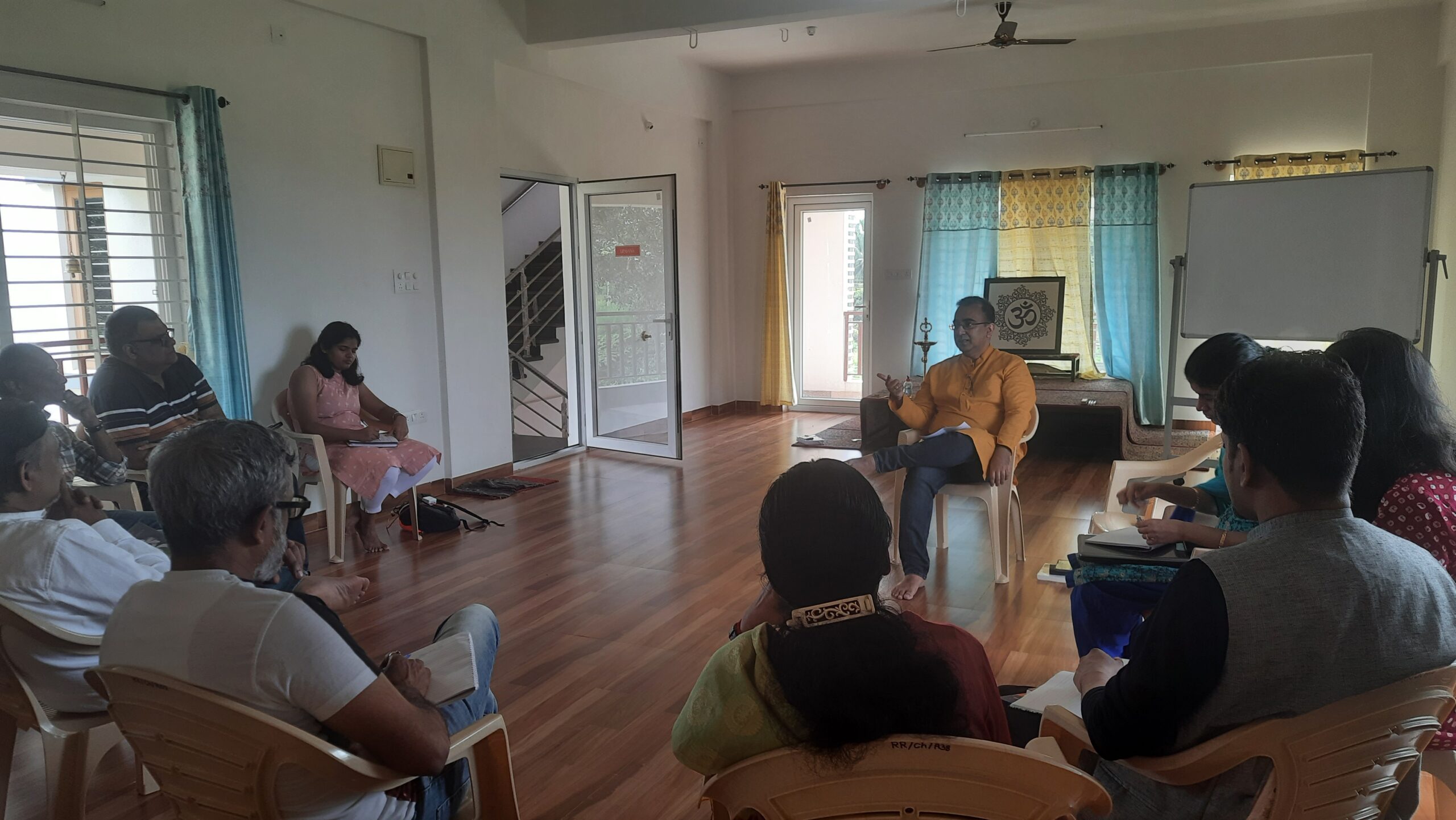 There are a million sites, books and master classes that offer courses on writing. How could one design that uniqueness? Our formal sessions started on Saturday, with Prof MS Chaitra ji elucidating on invoking experiential wisdom that can unlock the civilization potential in Indic writing. Novel, especially, is a literary form that gives a generous place to a narrative, letting the craft and voice of the writer create a unique storytelling experience. But given the colonial origins of the form, the participants realised through Chaitra’s eloquent demonstration that the novel also tends to block the writer from invoking the personal experience in its bias for the narrative and dominant tropes. This session was an endeavour to instil that experiential consciousness before the group began its journey of writing -a thrust to unleash the unique Indic voice, unburdened by the market driven generalisations.
There are a million sites, books and master classes that offer courses on writing. How could one design that uniqueness? Our formal sessions started on Saturday, with Prof MS Chaitra ji elucidating on invoking experiential wisdom that can unlock the civilization potential in Indic writing. Novel, especially, is a literary form that gives a generous place to a narrative, letting the craft and voice of the writer create a unique storytelling experience. But given the colonial origins of the form, the participants realised through Chaitra’s eloquent demonstration that the novel also tends to block the writer from invoking the personal experience in its bias for the narrative and dominant tropes. This session was an endeavour to instil that experiential consciousness before the group began its journey of writing -a thrust to unleash the unique Indic voice, unburdened by the market driven generalisations.
What better way to learn writing than analysing and deconstructing masterworks written be stalwarts and popular writers? GV Shivakumar, Scholar in Residence at Indica shared with the participants, a clinical and yet soulful way to read, analyse and review books, both in fiction and nonfiction genres. He stressed on highlighting the uniqueness of the book as well as the insights it added to the genre and existing narratives for a clear understanding of the content it attempted to deliver.
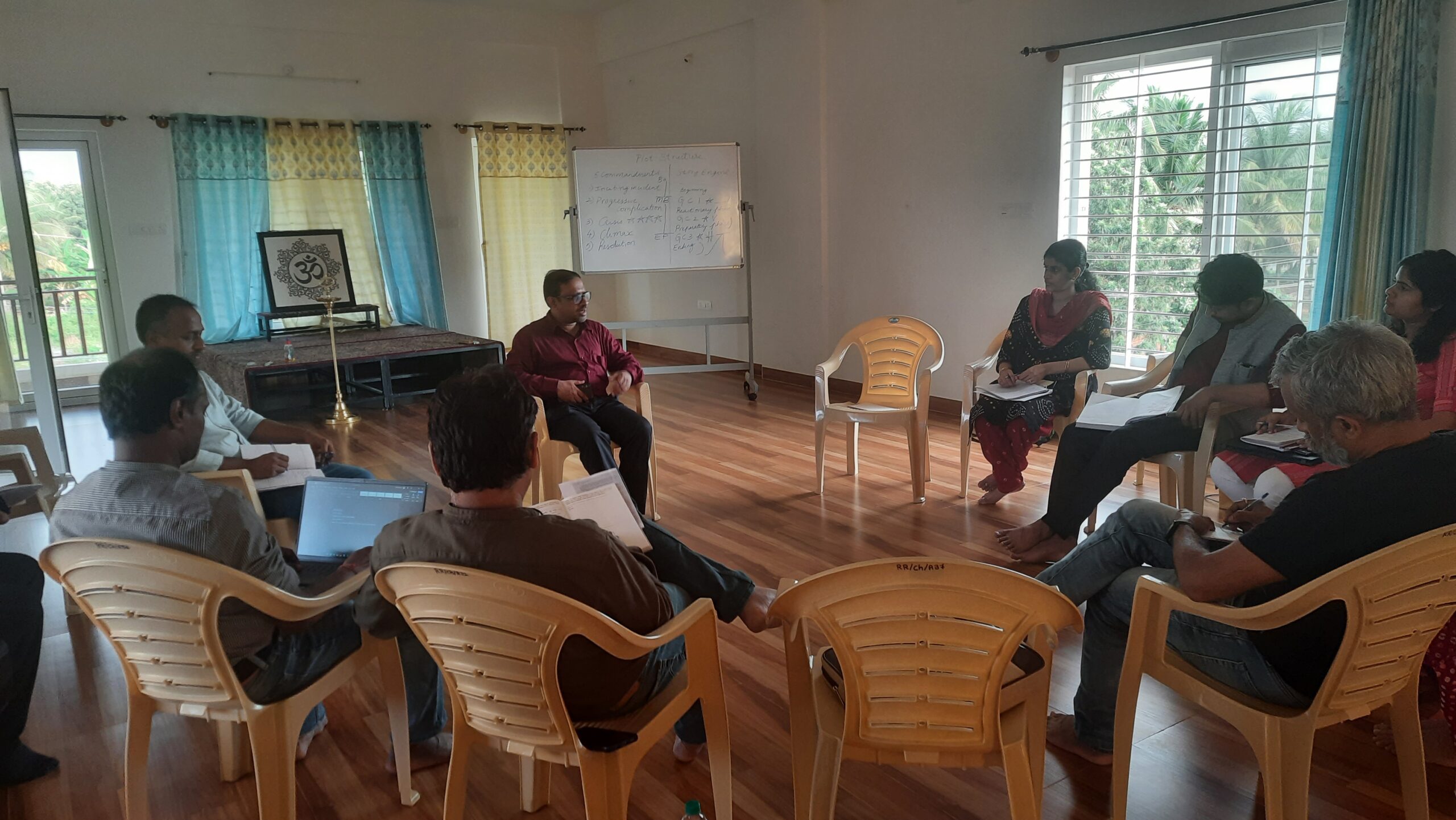 An immersive day would be incomplete without action and output. Sharing the methodology of plotting a novel along with techniques that helped me craft six novels, I set the group on a mission to plot their books, a first attempt to outline the wonderful stories in their mind on a paper. The timed exercise was an attempt to help the writers manifest their respective stories at a high level and set a direction to channelise their creative energies.
An immersive day would be incomplete without action and output. Sharing the methodology of plotting a novel along with techniques that helped me craft six novels, I set the group on a mission to plot their books, a first attempt to outline the wonderful stories in their mind on a paper. The timed exercise was an attempt to help the writers manifest their respective stories at a high level and set a direction to channelise their creative energies.
Given the confluence of high-spirited dynamism of the group, we also followed up the same with another timed writing session where each of us elaborated a scene. An opportunity I too seized to pen an opening to one of my own Work in progress pieces. Like the previous session, this was timed to 45 minutes. Cumulatively, the group put together, close to 9000 words in the given time – the magic of focus if one can just manage to shut out distractions if only for a short while.
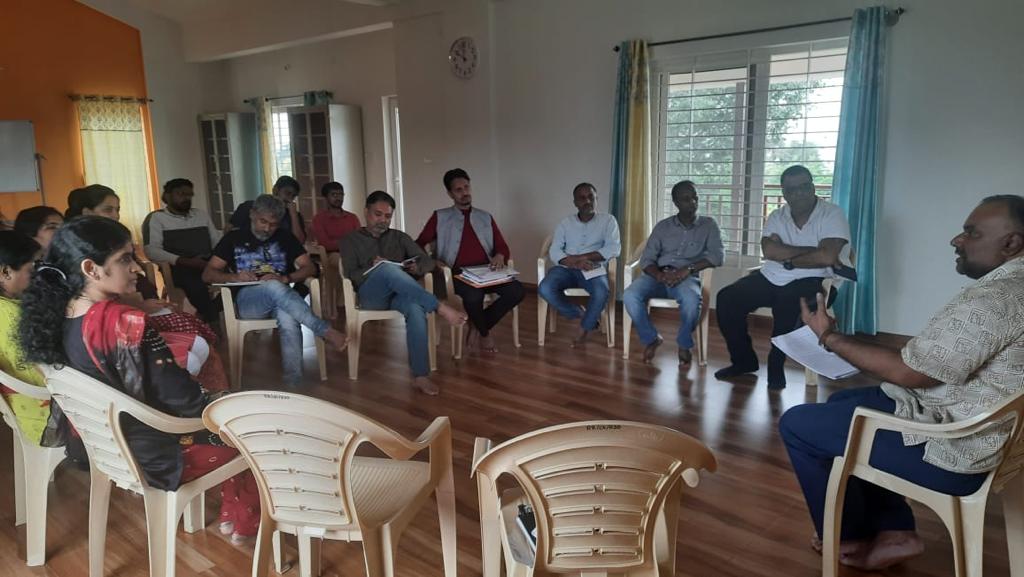 Now that the group had broken ice with their book ideas, it was time to introduce them to the elements of craft, especially the concept of “Show – Don’t tell”. And I could think of none better than Abhinav Aggarwal, the chief Curator of India Books and author of “Predators and Prey”, a perfect example of the principle in discussion. Abhinav ji in his own inimitable style, engaged the participants, pushing them to think in ‘show’ rather than in ‘tell’.
Now that the group had broken ice with their book ideas, it was time to introduce them to the elements of craft, especially the concept of “Show – Don’t tell”. And I could think of none better than Abhinav Aggarwal, the chief Curator of India Books and author of “Predators and Prey”, a perfect example of the principle in discussion. Abhinav ji in his own inimitable style, engaged the participants, pushing them to think in ‘show’ rather than in ‘tell’.
The aesthetically built environment of Ritambhara Retreat was a perfect catalyst to channelise our creative musings. Hospitality by Bhimashankar ji and Vinayachandra ji was akin to a warm home coming -could remind one of the proverbial our own near and dear in our native places. The care taken in preparing food, alerting the participants about the meal times, the warm conversations around meals usually preceded by shlokas from the Gita and Upanishads, the skilfully curated plantations, everything around the venue carried a rejuvenating element.

